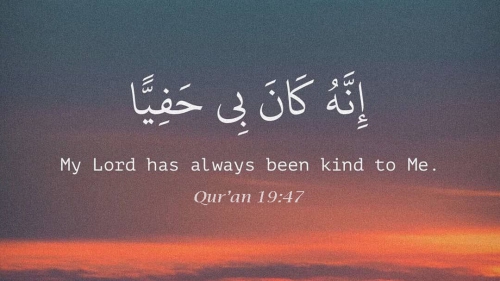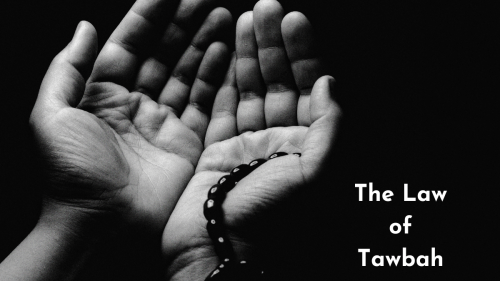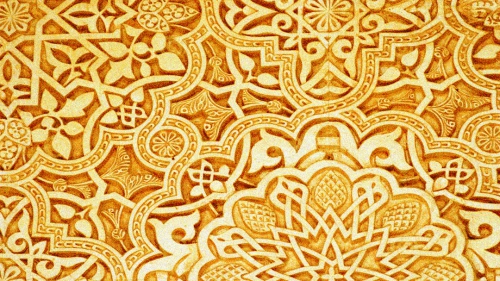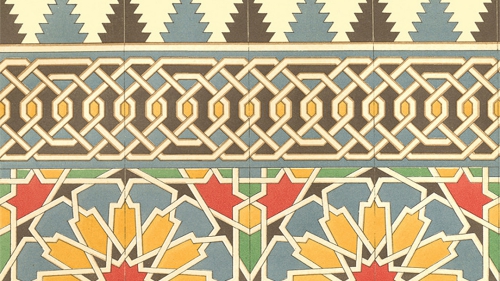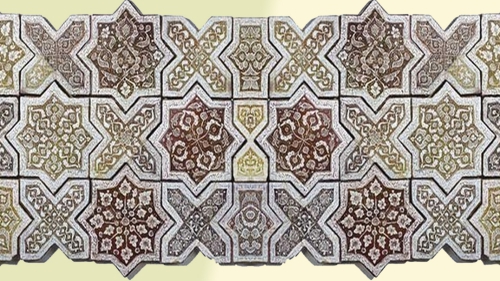Repentance: A Bountiful Blessing

As the warm breeze of Ramadan settles, we are reminded of the Prophet's statement, 'Upon the arrival of Ramadan the gates of Paradise are opened, the gates of Hell are closed and the devils are chained.'
Ramadan brings with it a host of possibilities. Look at it as a chance to enter into a garden filled with fresh fruits, luscious vegetables and beautiful flowers. Some will fill their baskets to the brim, others will fill them half way, and some will fail to fill their baskets with anything.
Those who filled their baskets will have done so with a varied harvest; some choosing the best the garden has to offer, while others simply settle for those of a lesser quality. One of the best fruits we can reap during this month is one of the most difficult to attain. Its fruit is not found on the ground having fallen from a tree, nor is it found amongst the lower branches. This fruit is found at the highest part of the tree and getting to it takes effort, patience and most importantly truthfulness with oneself. This is the fruit of repentance and reflection. 'Repent to Allah, oh believers, and you will be successful.'
Success is a tough word
Success is a tough word, it haunts us at work, home and school. And like a beneficial medicine, it is not easy to swallow. The reality of success is that it is anchored in the tangible; it is not a theoretical enterprise, but, as we say in the United States, "requires one to strap on his boots".
The Arabs understood this well, thus the word for success falah is associated with the one who farms or harvests al-falaah because the latter cannot come without diligence and hard work. So, repentance is a substantial enterprise, an effort, a struggle towards spiritual inventory. Caliph Umar said, "Audit yourselves before you are audited by Allah." Hassan, the Prophet's grandson also explains this concept. He said, "Those who have the easiest time in the hereafter are those who are keen to call themselves to account in this life."
Returning to Allah while struggling to swim the deep seas of life is a difficult enterprise, no one likes to hear bad things about themselves. But if we are able, during this blessed month, to sit and audit ourselves, to take account of our spiritual principals; investigating our true state and relation with Allah
, family and others, we will have reaped the fruits of a blessed harvest; setting the stage for a new course in our relationship with the Most Merciful. Once the Prophet
ascended the pulpit and at each step he was heard saying, "Ameen". Later the companions enquired about the Prophet's statement upon which he responded that Gabriel came to him supplicating against three types of people, one was he who failed to repent during the month of Ramadan thereby failing to be forgiven for his sins.
Overcoming the Obstacles
There are a number of obstacles that lurk hidden for the one who seeks repentance. Perhaps the greatest is the feeling of fear and despondence. Many feel that it is simply too late to change: "I've done my dirt and there is simply no way to get back on track."
Firstly, let's understand that sinning is part of human nature. The Prophet said, "Every person commits sins. And the best sinners are those who repent." Many have claimed that the feelings of profound guilt and depression regarding their state, chain them from turning to Allah
. This is one of the greatest tricks of the Devil; closing the door of hope to Allah's
mercy after sinning. Once a man came to the mosque of the Prophet complaining about his sins; the man was so overcome and saddened by his state that the Prophet said to him, "Say this: O Allah, your forgiveness is greater than my sins and my hope in Your mercy is greater to me than my [evil] actions."
The man said this and the Prophet said to him, "Say it again." The man repeated it, then the Prophet said to him, "Say it again." The man did it and the Prophet said to him, "Arise for, indeed, Allah has forgiven you!"
For this reason Ibn Kathir reports that the Prophet, upon him be peace, said about the verse, "Say [Muhammad] to My servants who have transgressed against themselves, do not despair of Allah's mercy. Indeed, Allah
forgives all sins and He is the One who forgives and is Merciful", "It is more beloved to me than anything under the Heavens and on Earth."
Secondly, sins should be seen as a strategy for one to turn in humility back to Allah . One of the early scholars said that, "A person could enter Paradise because of a sin he committed." Upon hearing this, his student challenged him by asking, "How could that be?" The scholar responded: "The sinner persistently thinks about it, which causes him to fear it, regret it, weep over it and feel humiliated in front of his Lord due to it. He stands before Allah
, broken-hearted, with his head lowered in humility. So this sin is more beneficial to him than doing many acts of obedience, since it caused him to have humility and humbleness - which leads to his happiness and success - to the extent that this sin prevents him from entering Paradise."
Thirdly, rebounding from sin is one of the simple fruits related to our success. If we were to ask many people what it was that brought them back to faith, many would mention a mistake they made in the past. The Prophet said, "Repentance is regret." That regret is one of our greatest fears. In reality, however, it is a mercy from Allah which pricks at our conscience until we ultimately return to Him.
Allah says,
وَعَلَى الثَّلاَثَةِ الَّذِينَ خُلِّفُواْ حَتَّى إِذَا ضَاقَتْ عَلَيْهِمُ الأَرْضُ بِمَا رَحُبَتْ وَضَاقَتْ عَلَيْهِمْ أَنفُسُهُمْ وَظَنُّواْ أَن لاَّ مَلْجَأَ مِنَ اللّهِ إِلاَّ إِلَيْهِ ثُمَّ تَابَ عَلَيْهِمْ لِيَتُوبُواْ إِنَّ اللّهَ هُوَ التَّوَّابُ الرَّحِيمُ
"And [He also forgave] the three who were left behind [and regretted their error] to the point that the Earth closed in on them in spite of its vastness, and their souls confined them and they were certain that there is no refuge from Allah except in Him. Then He turned to them so they could repent. Indeed, Allah is the Accepting of repentance, the Merciful." (9:118)
Notice the wording at the end of this verse "Then He turned to them so they could repent." Thus, repentance doesn't start with the sinner, but begins when Allah turns to him with His mercy, love and compassion; awakening his heart with guilt, gently guiding him to His forgiveness. The sinner was lost in a sea of confusion and misery and Allah
found him, guided him and forgave him.
The Prophet said: "Allah has greater joy at the repentance of one His servants when he turns towards Him than one of you would have over his mount, which, having escaped from him saddled with food and drink in the middle of the desert, so that he has despaired of finding it and gone to a tree to lie down in its shade, it suddenly appears standing by him while he is in that state, so that he takes its reins and then says out of the intensity of his joy, 'O Allah
, You are my slave and I am Your Lord!' getting confused because of his intense joy."
Fourth, I've done so many things in the past and failed to repent. How is it that, after all of these years, I could face Allah with such a blackened record? The Prophet, upon him be peace, said, "Allah the Mighty and Majestic accepts the repentance of His servant as long as his death-rattle has not begun." Thus, no matter when, as long as one turns to Allah
seeking His forgiveness, only then can that person expect to be forgiven.
Furthermore, there is no sin greater than Allah's ultimate mercy and forgiveness. The Prophet said: "Allah the Almighty has said: 'O son of Adam, so long as you call upon Me, and hope in Me, I shall forgive you for what you have done, and I shall not mind. O son of Adam, were your sins to reach the clouds in the sky and were you then to ask forgiveness of Me, I shall forgive you. O son of Adam, were you to come to Me with an earthful of sins and were you then to face Me, without having associated anything with Me, I shall grant you an earthful of pardon.'"
Ibn Rajab noted that this Prophetic tradition begins with "O son of Adam" because of its context, repentance and forgiveness. Thus, when one despairs over his mistakes and shortcomings, he should recall Allah's favor upon mankind, exercised upon their forefather Adam. Thus, just as Adam repented to his Lord and, as noted in the Qur'an, "He immediately forgave him," his offspring should do the same.
The Qualities of Repentance
Scholars noted that sound repentance should be coupled with the following qualities:
1. Leaving the sin
2. Regret, and
3. Resolving never to return to the sin again.
The month of Ramadan is a time of serious reflection, increased awareness and devotion. Its beginning is mercy and its ending is marked by forgiveness and salvation. Let us take advantage of this time to set aright our affairs, rebounding from our mistakes and sins from the past. Let us turn to the Most Merciful.
( Source - Emel )
Topics: Barakah (Blessings), Ramadan, Sin, Tawbah (Repentance) Values: Forgiveness, Mercy Channel: Ramadan - Day 12
Views: 19091
Related Suggestions







